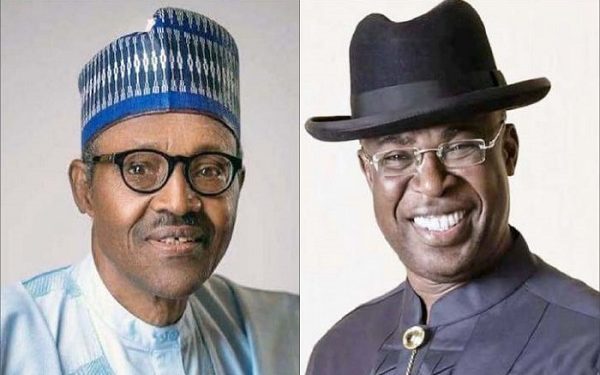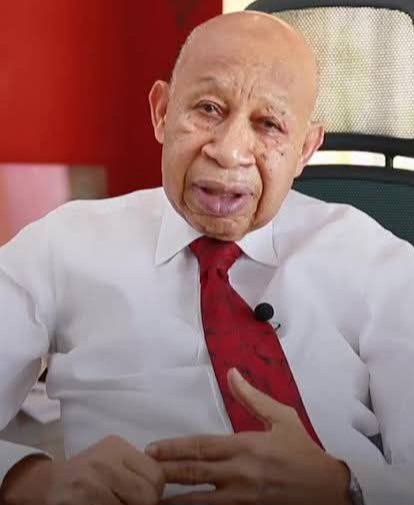Achieving The Elimination Of Gas Flaring By 2025

The House of Representatives joint Committee on Gas Resources, Environment and Climate Change’s public hearing was aimed at garnering recommendations that will help in reducing the devastating consequences of gas flaring. Minister of State for Petroleum Resources Timipre Sylva set a deadline of 2025. Sylva said this was part of efforts geared towards harnessing the nation’s gas resources for maximum economic benefit and in compliance with global agreement as contained in the Paris Agreement of the United Nations Framework Convention on Climate Change. According to a report by PriceWaterCoopers, beyond the extremely negative impact of the practice on the environment and humans, the country loses $750 million annually from this dangerous practice. Sylva said gas flaring has been reduced significantly to a very minimal level of eight percent.
“At the beginning of this year, we declared year 2021, the beginning of the gas decade. We believe that with all the programmes we have in place, we are on course to achieve complete elimination of gas flaring by 2025,” he said at the hearing tagged ‘Need to End Gas Flaring in Nigeria and Harness Associated Gas in Nigeria’.
Sylva’s position was backed by Nigerian National Petroleum Corporation (NNPC) Group Managing Director Mele Kyari, who said one of the ways of ending gas flaring in the country was to harness its economic value, adding that even after imposing penalty on operators in the sector, only an economic-driven solution may be needed.
“This is what we are doing today so we can use gas to develop our country, create wealth and opportunity. No one would want to flare gas when it can be commercialized but there must be a perfect framework to achieve that.
“One is to put the enabling infrastructure which we are doing, we are building major trunk lines that will receive most of the flared gas you are seeing today. We are connecting most parts of the country to the gas network so that people can convert this gas either for power or industrial use and we hope to achieve this by the end of March.
“It is business that makes people invest, no matter how much penalty you put, if the cost of the penalty is cheaper than the cost of developing the gas that may not be commercial, people will continue to flare gas and pay the penalty,” Kyari said.
Speaker of the House of Representatives Femi Gbajabiamila assured that the 9th Assembly would do everything within its powers to stop gas flaring. He said the conversation about gas flaring in the country has been going on for a long time, regretting they have not yielded the desired results.
Represented by the Chairman of the House Committee on Federal Judiciary, Hon. Onofiok Luke, the Speaker said: “We have not managed to end the environmental damage that results from gas flaring, and we are still deprived of the economic benefits of full utilisation of gas resources in our country.
“In this 9th House of Representatives, we intend to do everything we can to change this narrative. We will convene stakeholders to deliberate and resolve the policy disagreements and other issues that have mitigated against the effective utilization of gas resources. Following that, we will take legislative action through bills and oversight to achieve the ambitions we hold in this regard.”
The Chairman of the House Committee on Gas Resource and Chairman of the Joint Committee, Hon. Nicholas Mutu, maintained that government efforts to stop gas flaring have been inadequate and ineffective since 1979 when Nigeria made the first legislative attempt to address the problem of gas flaring, saying “zero-flare gas deadlines have routinely shifted to future dates.”
Mutu described it as a malady every relevant stakeholder must work together to eliminate at the shortest time possible, because of its all-round adverse effects on the environment and socio-economic well-being of the people of Niger Delta region, as well as, on the fiscal measures of the Federal Government.
He said the gas being flared can serve as feedstock for other industries, which if properly harnessed would stimulate economic growth, create jobs, and provide income for midstream companies and earn revenue for the government through taxes.
While commending the government for the 2018 gas flare regulation which imposes the penalty of $2.00 per million standard cubic feet (MMSCF) of gas flared, he stressed the need for compliance with the provisions of the penalty regime.
The lawmaker said as part of their legislative oversight they hope to work with stakeholders to deploy an early warning mechanism to track gas flare volumes; and to ensure that penalties are correctly paid for flared gas.
The Chairman of the House Committee on Environment, Johnson Oghuma, said it was unfortunate that the deadline date to end gas flaring in the country has been shifted several times by the government and hoped the 2025 date will not be shifted again.
Oghuma said: “Ending gas flaring has been a contentious issue. This is well captured in the continuous shifting of the date of ending gas flaring by the federal government of Nigeria as well as the lack of openness in the policies of oil companies and strategies for ending associated gas.
“While the first date to end flaring was 31st December 1974, the deadline has been moved severally and was earlier put at 2020 which was not achieved. I was taken aback when the Minister announced that it is now 2025. It is now left to be seen if the country can meet the international zero tolerance of routine flaring by 2030.
“The 9th House of Representatives has clearly captured in its legislative agenda, the determination of the House to pursue such legislative works that will ensure the reduction of the emission of greenhouse gases and resort to cleaner energy options and reduction of deforestation.”
The Ovie of Idjerhe Kingdom in Delta State, King Obukhowo Monday Whiskey, said: “The proposed intention of the Federal Government to stop gas flaring by 2025 is not a new promise that stakeholders should be celebrating because the oil multinationals and Federal Government has been shifting the goal post in the past years.
“As a critical stakeholder in the Niger Delta project it is better for the Federal Government to be more realistic in keeping its covenant with her people as oil and gas multinationals have this conspiracy tendency of misleading the government on policy promises.”
King Whiskey said the fine paid by gas flare penalty should be used to fund the proposed Gas Flare Trust Fund to be managed by members by the Host Communities of Nigeria (HOSCON) under the chairmanship of King Alfred Diete Spiff and Dr Mike Emuh as National Chairman.
He suggested that all gas flare sites should be converted into gas turbines for the purpose of generating electricity.
Environmental activist Ledum Mitee shared King Whiskey’s opinion on the deadline.
Mitee said: “The shifting of goal posts has been so perennial. This is almost the fourth time that they have shifted the goal post. Now we are hearing another 2025 date. The question is what is it that thing we have done on the ground to achieve this, because the 2025 you are talking about looks far away but it is like tomorrow. We must be able to ask ourselves: what are the facilities on ground that would ensure this becomes realisable?
“Meanwhile why has the government’s position always been that if you do not stop gas flaring then you pay the penalty? First the penalty because it is so minimal, the companies think it is cheaper to pay that and continue to flare. Now the penalty is not for those who are affected and inflicted by the gas flaring. The penalty is for the government. What this means is that someone pollutes your household and you suffer diseases and then they carry the money to the government that now shares it irresponsibly and this has been the bane in this country.
“Nigeria is the only country that is still in this kind of situation. So I believe that the government is not thinking about the lives of people in the Niger Delta. Apart from the huge resources wasted from that, we continue playing games because we believe that the lives of people can be sacrificed on the altar of these things.”
He said because the right and environment-friendly process of separating oil from associated gas, which is what flaring aims to achieve, would cost more, the companies find it convenient to default and pay the fine.
“So the oil companies have now found out that the process of separating gas from the associated gas from the oil is going to cost some money. And because the money that is being paid for so called penalty is so minimal, so why should they waste time to go through the process, which is the right thing to do. That is what is happening everywhere else in the world. It will create jobs and a whole lot of things but instead you flare it away, take the oil and now kill vegetation, pollute the atmosphere and endanger the lives of the people. This is not done anywhere in the world.”
Also notable traditional high Chief in Gbaramatu Kingdom, and founder of the non-governmental organisation, the Center for Peace and Environmental Justice (CEPEJ), Chief Sheriff Mulade, said: “The dangers of gas flaring cannot be overemphasized. We have been talking about it over and over again but the government of Nigeria decided to pay deaf ears to the cries of the people of the Niger Delta because the government of Nigeria is after the proceeds of the Niger Delta. They are not after the well-being of the people. That is why they pay total neglect to the region.”
-NATION







